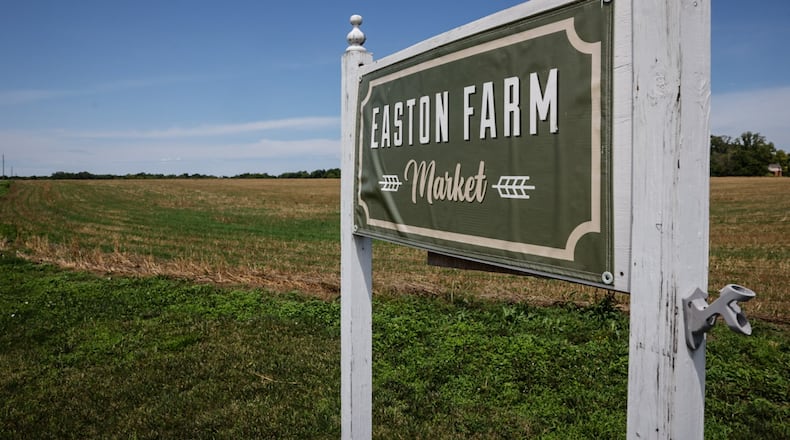If approved, the district would construct a new school for pre-kindergarten through second grade with all-day kindergarten. The school would cost an estimated $66.57 million. It would be built on the former Easton Farm site, said Erin Meyer, district communications coordinator.
The school district and city of Springboro in March reached an agreement on the exchange of 20 acres of the city’s 60-acre parcel in the 103-acre Easton Farm housing development at 605 N. Main St. (Ohio 741) for two district-owned parcels.
The city would receive the former Jonathan Wright property, about 6.5 acres at 40 Florence Drive between East Central Avenue (Ohio 73) and West Market Street. The second parcel is the 14-acre Clearcreek Elementary School site at 750 S. Main St. once it is no longer in use.
With this plan, Springboro Intermediate School would be closed and Clearcreek Elementary School will be demolished by the city, Meyer said said.
The bond issue would fund a multipurpose stadium that would cost $6.9 million, along with an addition of six classrooms and café at the junior high school for $6.9 million. The rest of the $34.5 million would go toward adapting Dennis and Five Points elementary schools for third through sixth grades and upgrades to buildings in the areas of safety, technology and other needed improvements, Meyer said.
The 37-year bond levy on the November ballot would not cost additional money because a 28-year bond issue approved in 1995 to build Springboro High School was paid off in 2023. Also, a 28-year bond issue to build Dennis and Five Points elementary schools will be paid off in 2032, district Treasurer Terrah Stacy said previously.
When debt is structured, bonds are sold that mature at various intervals, leading to a drop in what is owed, she said.
“Springboro Schools has millage that will be falling off in January of 2026. If that millage remains, a new building and other improvements could occur without increasing your taxes,” Stacy said.
If voters approve the bond issue in November, the expected timeline for the new building is for the design phase to continue through next year and for construction to start possibly in 2027 with a completion in time for the 2029-30 academic year, the district said previously.
“A yes vote would allow us to complete this project without raising property taxes. A no vote would keep our buildings with the current configuration, and it would reduce property taxes for residents by about $8 per month per $100,000 in value,” Meyer said.
If the levy is not approved, the city would still receive the Jonathan Wright property and the district would receive technology considerations from the city for seven years.
About the Author


